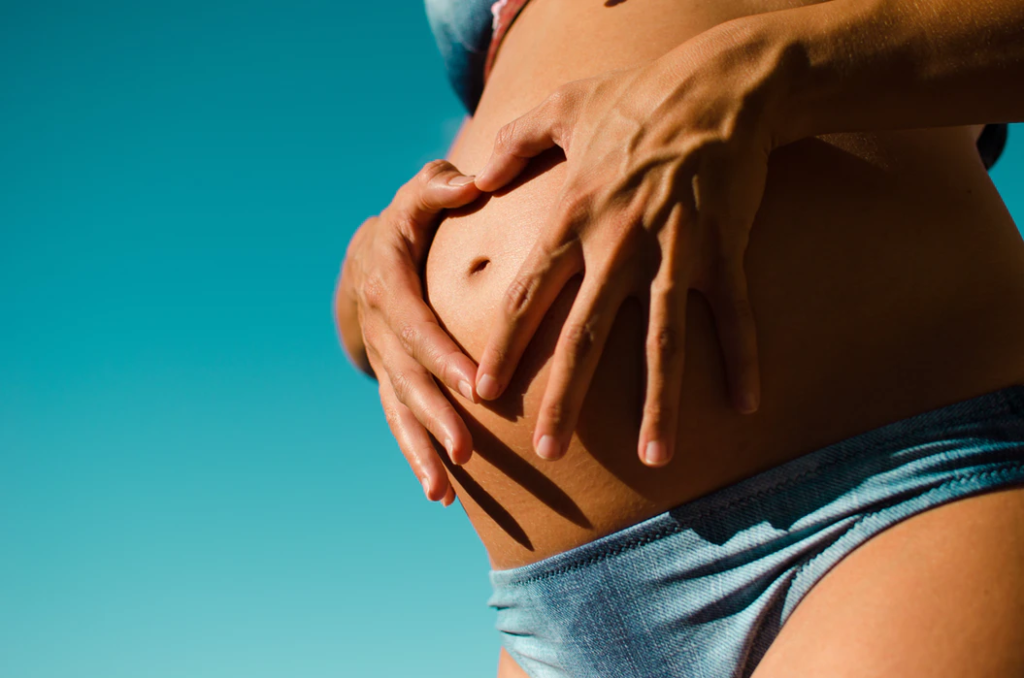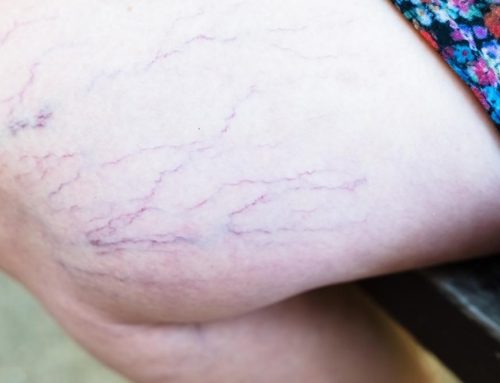When you’re pregnant, the volume of blood increases and blood flow from your legs to the pelvis slows down. The mismatch between the flow of blood and the volume of blood increases pressure in the vein which leads to the formation of varicose veins.
Varicose vein are most commonly found in the legs but in pregnant women, they appear in the vaginal area as well as the buttocks.
Varicose veins may also occur due to an imbalance in hormones which causes the vein to dilate. Also, during pregnancy, the uterus adds more pressure on the vena cava which is the vein that transfers blood from our legs and feet to our heart; this again causes dilation in vein and leads to the formation of varicose vein.
Apart from being unsightly and being a little uncomfortable, varicose vein aren’t usually a cause of concern. Varicose veins in pregnant women tend to disappear 3 to 12 months after childbirth.
Preventing Varicose Veins While Pregnant

You can’t (and shouldn’t) prevent circulatory changes your body is experiencing during pregnancy, however, you can take steps to avoid the formation of varicose vein.
Here are some preventive measures you can take during pregnancy to prevent varicose veins:
- Don’t sit or stand in the same position for too long, doing so will overstress certain vein and increase the chances of varicose veins. The more breaks you take, the better it will be for you.
- Don’t wear high heels. Wearing low-heels and flat pumps are better for blood circulation.
- Speak to your doctor about whether it’s safe for you to exercise. Pregnant women can do exercises of low-to-moderate intensity to promote blood flow.
- Use maternity support hosiery. These work similarly to compression stockings and can stimulate blood flow up the leg and into the heart.
- Don’t cross your legs when sitting.
- Sleep on the left side to reduce stress on the inferior vena cava.
- Avoid sodium and salty foods.
- Eat fibrous foods and drink lots of water.
Treating Varicose Veins After Pregnant
There are non-invasive surgical procedures available for varicose vein, however, they aren’t recommended during pregnancy. Usually, when varicose vein form during pregnancy, they disappear with time after childbirth.
If varicose vein get swollen, feel warm, tender, or start bleeding, you will need to see a doctor. Women who notice a rash on their leg or ankle, or if the skin on their leg begins to thicken and change color should consult an experienced varicose vein doctor right away.
Varicose vein surgery can’t take place during pregnancy, but can easily be performed after birth.
Varicose Veins Doctors in New York offer a range of vein treatments that consist of radiofrequency ablation, laser ablation sclerotherapy, and ClariVein. We treat leg cramps, leg heaviness, spider veins, varicose veins, restless leg syndrome and more.
Contact us today for a consultation.





